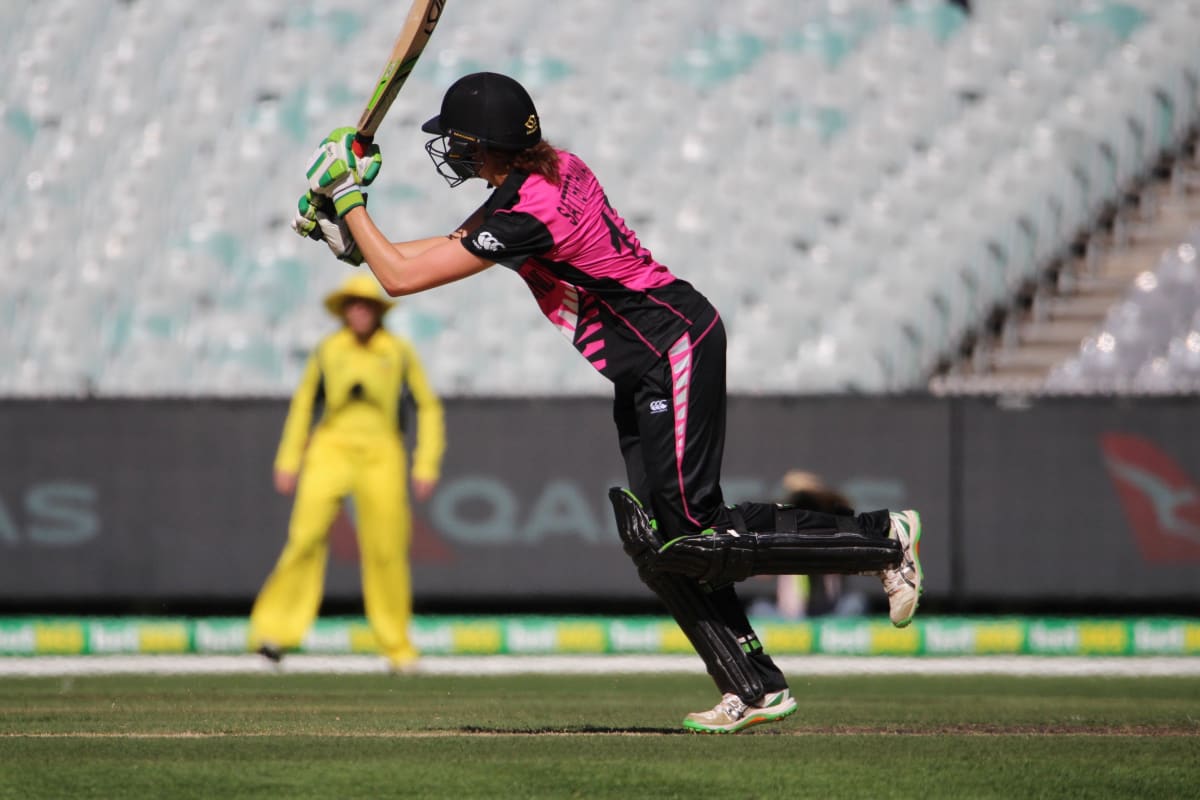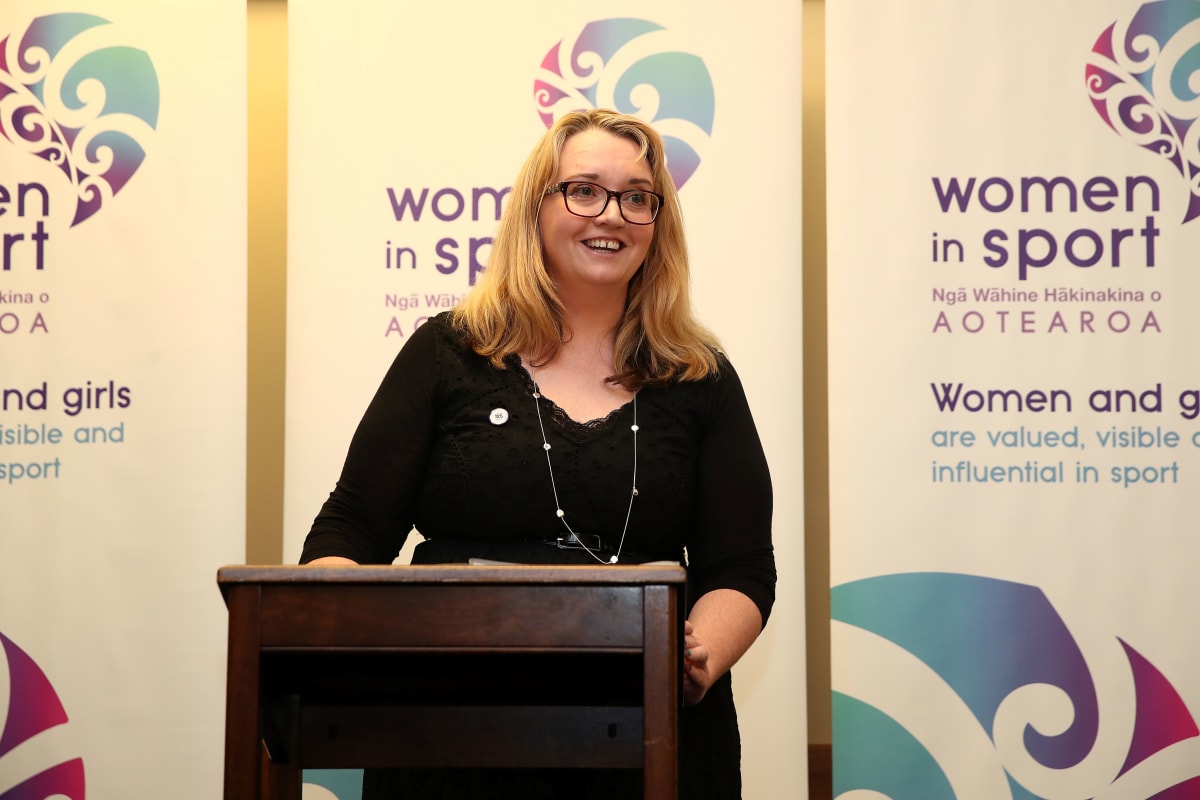
[ad_1]
LockerRoom
New Zealand should be proud of its efforts to get women and girls playing sport again, says a women’s sport leader, as others around the world look downunder for inspiration
Curious sports leaders around the world could cast their eyes to New Zealand this week to see how a nation at the bottom of the globe is “leading the way” in restoring sport for women and girls.
Normal transmission has, of course, yet to resume for sport in New Zealand after Covid-19 brought it to an unprecedented stand-still earlier this year.
But as it slowly makes a comeback to our fields, courts, tracks and pools, New Zealand is in a better position than many nations around the globe – especially for women and girls competing again.
Elite sport has been revived – the White Ferns are battling it out in the Rose Bowl across the Tasman, the Silver Ferns squad are in camp preparing for two series at home later this month, the Warriors women are finally playing in the NRLW, and rugby’s Farah Palmer Cup is in full swing. Basketball’s women’s NBL and hockey’s new premier league are set to start next month.
And Rachel Froggatt, the CEO of Women in Sport Aotearoa, says she’s spoken to a number of people involved in the women in sport movement globally who are looking to be inspired by what New Zealand’s done – and is trying to do.
Some will even attend the three-day Sport NZ Women + Girls Summit – a digital-physical hybrid event kicking off tomorrow, focused on how sports organisations can put change into action.
Having held grave fears that the momentum picked up by women’s sport globally in the past five years would be lost, Froggatt says she’s now feeling more positive about where we stand.
“New Zealand has been in a very fortunate position, I think, when it comes to halting the slide,” she says. “That’s not to say that things are perfect and where we want them to be. But considering the tremendous impact Covid has had, I think New Zealand should be very proud of where we are right now.”

But through her other role as secretary general for the International Working Group for Women in Sport, based in New Zealand through to 2022, that’s not what she’s seeing around the world.
“There are major struggles on all continents around protection and development of women’s sport at the moment,” Froggatt says. “But I think it’s fair to say from our observation, New Zealand is leading the way.”
Take the United Kingdom, where research shows a decline in adult physical activity even since Covid restrictions have been eased. Steph Hillborne, the CEO of Women in Sport UK, has called for all national sports bodies to include community programmes for women as well as the elite women’s game in their crisis recovery plans.
“I spoke to Steph early on in the pandemic, and they were tracking what we were doing in New Zealand and taking some learnings from some of Sport NZ’s actions,” Froggatt says. “They feared, like us, that if you left women’s sport on its own for a year or more, we would lose all momentum.”
Among the over 700 who’ve registered for the online Women + Girls Summit, there are a good number of international attendees, says Froggatt. “Some to get inspiration from New Zealand, but some are also having a sneaky look at what we’re doing ahead of the IWG Women in Sport conference in 18 months’ time.”
This year’s summit is the second of three held annually in the lead-up to the IWG conference in May 2022, which will also be a hybrid event. So those who can’t get to Auckland – if the battle against Covid still demands border restrictions – can still take part virtually.
“At last year’s summit in Wellington, we sat down and looked at the ‘why’ – why were there barriers in place? Why were there challenges around women and girls having equitable access to sport and recreation in this country?” Froggatt says.
“So, this year it’s about what can we do, what actions can we take as we go back into our own sports environments around the country. It’s to help people discover ways in which they can make positive change from now on.”
What were the ‘whys’?
The first was “embedded systemic barriers” standing in the way – preferential behaviour directed toward male athletes and teams over female athletes and teams.
“For example, access to equipment, to sports fields,” Froggatt says. “Even access to changing rooms was a massive issue around the country.
“Other barriers were very much societal – ways of doing things and thinking about things that have been embedded for decades in New Zealand sport. Around the types of roles women and girls were playing in sport.
“Like behaviours around the recruitment table when it was time to pick a new coach, a high performance director, or a senior leader. It’s even at the governance table. The way interviews were set up worked against women from the very beginning.”

Froggatt says the rollercoaster ride over the past six months for women and girls in sport here is now on a positive incline.
“We’ve gone from a place of very concerned, to a place of relief, to now a place of a positive focus for the future,” she says.
“It’s really interesting how many, and how quickly, people signed up for this year’s summit. Covid-19 has presented us with a silver lining in the sense that through technology, we’ve been able to reach a lot more people.
“It indicates a massive sense of urgency to have this conversation around women and girls in sport, where we are now and what the future holds.”
Those attending the online summit – which runs for three hours on three consecutive afternoons – range from sports board governors to schoolgirl athletes.
With the core of the summit’s programme on an online platform, attendees can pick the panels or workshops they want to attend. Each day will be based on a different pillar of the government’s Women and Girls in Sport strategy – leadership, participation, and value and visibility.
The keynote speakers are shearing and Maori agribusiness icon Mavis Mullins, former elite AFL footballer turned Australian golf administrator Chyloe Kurdas, and Craig Spence, chief brand and communications officer at the International Paralympic Committee.
But there will also be a physical component in some parts of the country. Sport Wellington, Aktive Auckland and Women in Sport Otago will host their own workshops tying in with the conference.
“As we’ve got closer to the summit, other organisations have approached us and said they want to do something in their regions as well,” Froggatt says. “So now we have satellite hosts in Tauranga, Hamilton, Gisborne and Christchurch gathering their women in sport together to have a conversation around what their community really needs.”
* Women in Sport Aotearoa, Ngā Wāhine Hākinakina o Aotearoa, is New Zealand’s leading research and advocacy agency for gender equity in sport and active recreation. It is the delivery agent for the International Working Group (IWG) on Women and Sport Secretariat and Conference 2018 – 2022
[ad_2]
Source link